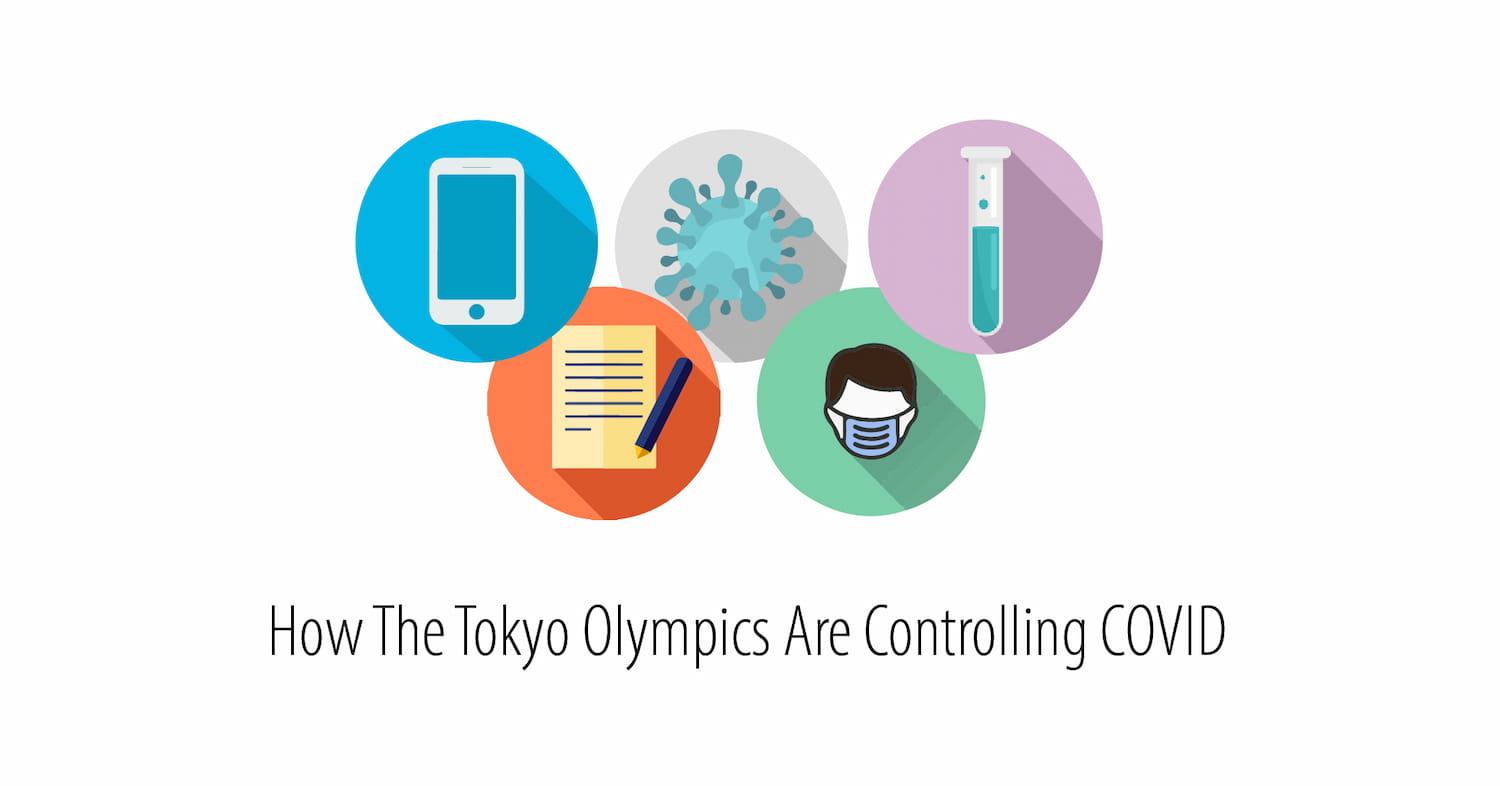 Global events have a long history of impacting the Olympic Games. World wars have cancelled the modern Olympic games three times, political boycotts have affected some nations several times, and concerns over disease (both human and equine) have affected where and when these world-class athletes could compete. The 2020 Tokyo Olympic Games, however, represent the first time the events have been postponed in modern history. Now the world's top athletes are preparing to compete amidst concerns that SARS-CoV-2 is still circulating, presenting issues to the host country as well as the travelling athletes. How are the Olympics handling the pandemic? In today's post, we'll describe some of the steps Japan is taking to keep their country and the thousands of visitors safe and healthy.
Global events have a long history of impacting the Olympic Games. World wars have cancelled the modern Olympic games three times, political boycotts have affected some nations several times, and concerns over disease (both human and equine) have affected where and when these world-class athletes could compete. The 2020 Tokyo Olympic Games, however, represent the first time the events have been postponed in modern history. Now the world's top athletes are preparing to compete amidst concerns that SARS-CoV-2 is still circulating, presenting issues to the host country as well as the travelling athletes. How are the Olympics handling the pandemic? In today's post, we'll describe some of the steps Japan is taking to keep their country and the thousands of visitors safe and healthy.
The last Olympics that was even close to Tokyo in terms of facing a global disease was Rio in 2016, which hosted the Summer games during a major Zika outbreak. However, Zika was transmitted via a vector, mosquitos, and not human-to-human contact. Because of the nature of COVID transmission, the Tokyo Games are setting in place extremely strict protocols that begin even before the athletes leave their countries. The main philosophy behind the measures (in addition to universal masking) are: Test, Trace, and Isolate. Let's see how that plays out for athletes and their teams.
14 Days Before Travel
Before athletes even leave their home countries, they are assigned a COVID-19 Liaison Officer, or CLO. This individual is responsible for making sure their assigned charges understand and follow the COVID-19 prevention measures, and serve as the communication between the Infectious Disease Control Centre (IDCC), the IOC COVID-19 Support Unit (ICSU) and Olympics participants. Before travelling to Japan, all Olympics participants (athletes, team members, press, etc.) must download two smartphone apps (an online health report app and an app that tracks location and proximity). Travelers must also submit an Activity Plan for the first 14 days of their visit, detailing where they will be going and when and with whom they will have contact. They must also sign the "Written Pledge" required by all travelers to Japan, confirming that during the first two weeks of their stay they will not ride public transport, that they will stay isolated from the general public, and will provide information about their whereabouts to the Japanese health authorities. Finally, right before travel, athletes and their entourage must test negative for COVID-19 twice within 96 hours and obtain a test result certificate that complies with the Government of Japan.
First Days in Japan
Upon arrival in Japan, all visitors must show required testing documentation to a Quarantine Officer and submit to a quantitative saliva antigen COVID-19 test while still in the airport. If they test negative, they are free to leave, but must adhere to their submitted Activity Plan, including three days of total quarantine. Since athletes do not move into Olympic housing until 5 days before the games, most visitors will be staying in hotels around Tokyo, all of which must be certified by Tokyo 2020 to make sure they are following all health guidelines. These locations isolate international Olympics guests by providing separate dining hours, as well as placing some additional requirements such as restricting them to certain elevators or entryways. Since Japan has a very low vaccination rate (only 18%), protecting the residents of Tokyo, especially the staff of these hotels, is a high priority. After settling in to their temporary homes, Olympics visitors must begin their daily health reporting via the app and their daily COVID testing. All locations they visit must be to official Olympics venues and events - there will be no sightseeing during these first two weeks!
Throughout Stay In Japan
In some cases, the initial 3-day quarantine and 14-day restrictions can be lifted if movement is highly regulated and all COVID tests are negative. However, for the vast majority of Olympics visitors, the first 14 days will be highly restricted in movement. After this time period, however, movement can be more spontaneous, while some measures remain. Visitors must continue to check into the health reporting app, and submit to daily COVID-testing as well as monitoring of body temperature and health symptoms before entering any venue. Before preparing to leave Japan, athletes and other visitors will need to follow the requirements of their destination with regards to testing, documentation, and quarantine.
With all these precautions in place to protect athletes, entourage, press, and other necessary travelers, it becomes more obvious why it was necessary to ban spectators from the Games. Can you imagine the complexities of monitoring hundreds of thousands of additional travelers entering the city, staying at hotels, traveling to venues, and watching the competitions? There would have been no way to provide the citizens of Japan the security required to ensure that the Olympics wouldn't become a super-spreader event. So for this year, athletes will have to encourage each other as they compete. (They just can't cheer or chant. Or high-five. Or hug.) But it will all be worth it to get a chance to compete in what will be the pinnacle of their athletic careers. So as we all keep track of medals earned, the world will also be tracking COVID cases during the Games, as the world watches to see how these measured worked to prevent the spread of SARS-CoV-2.

